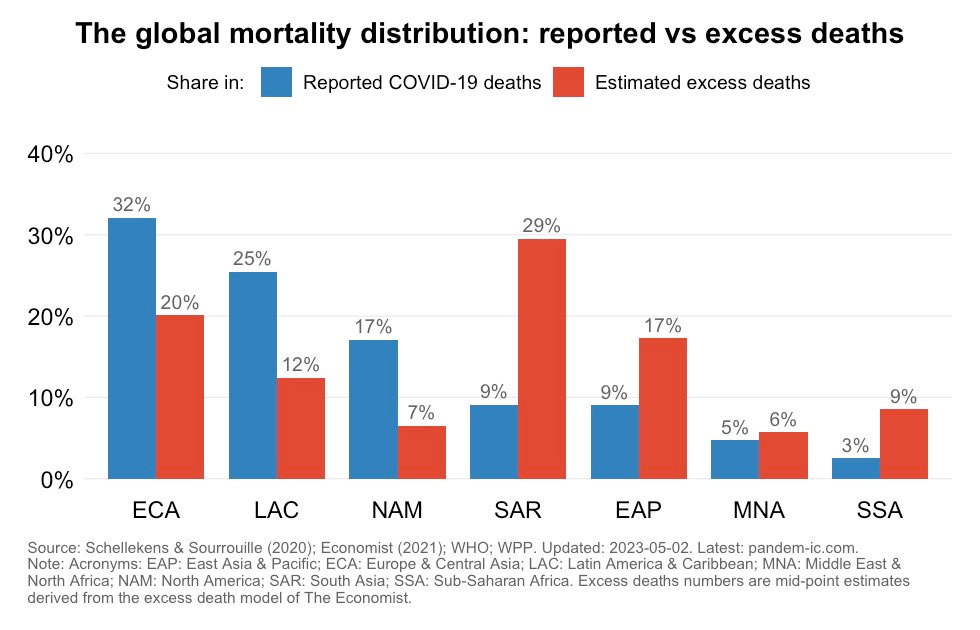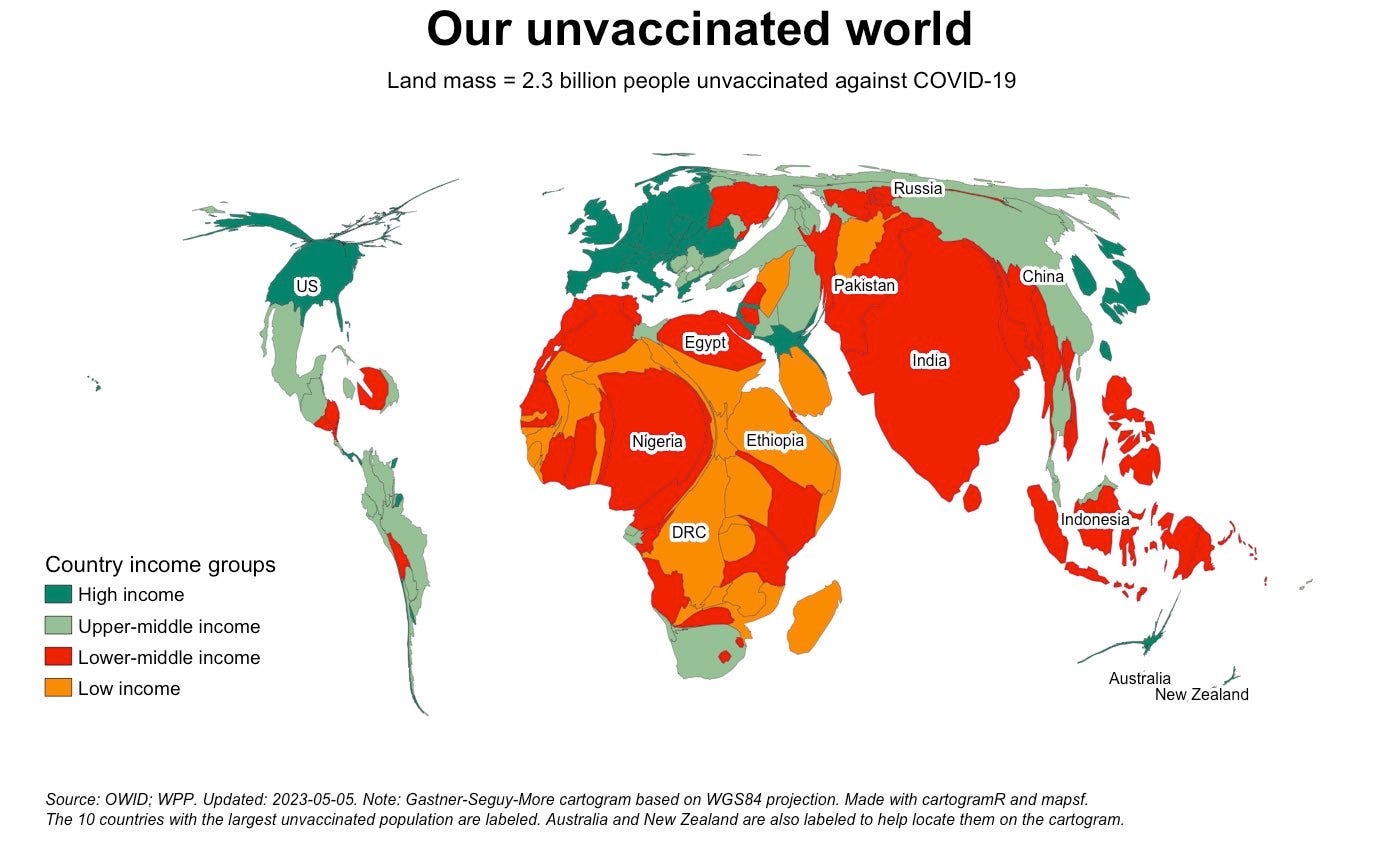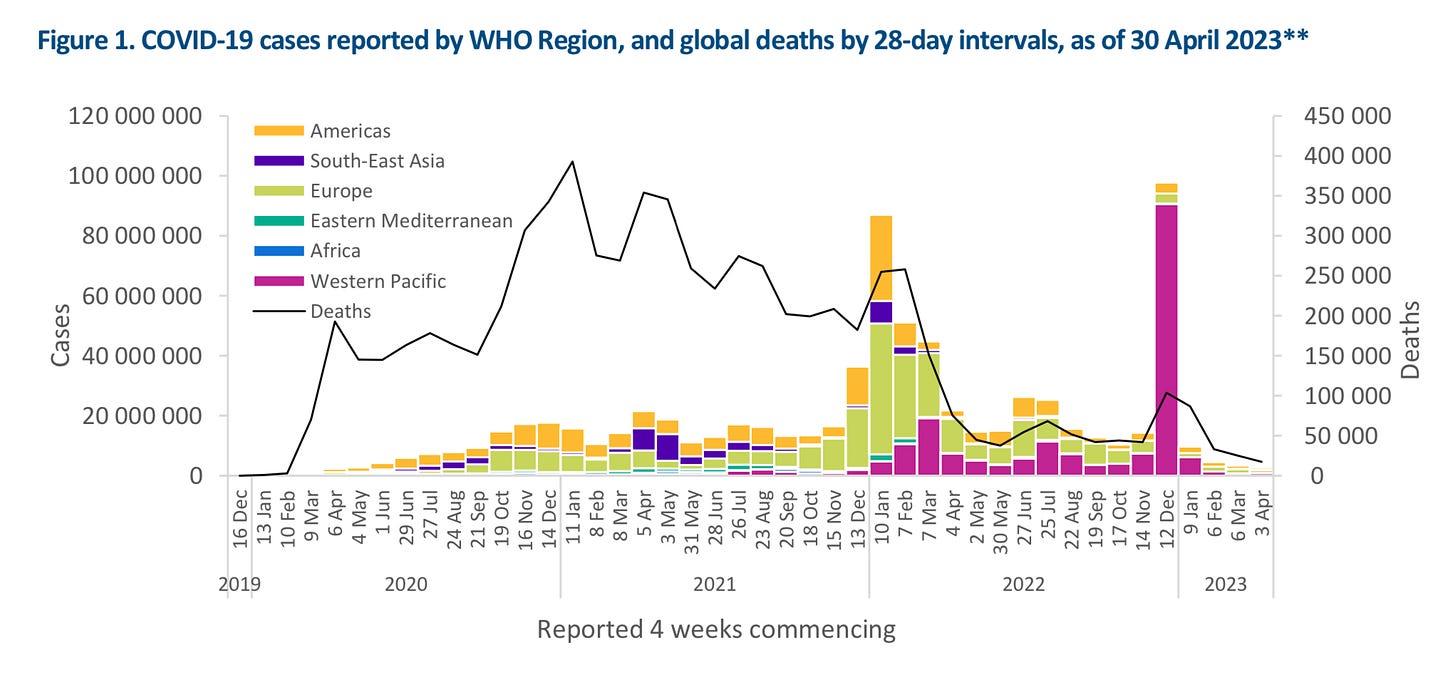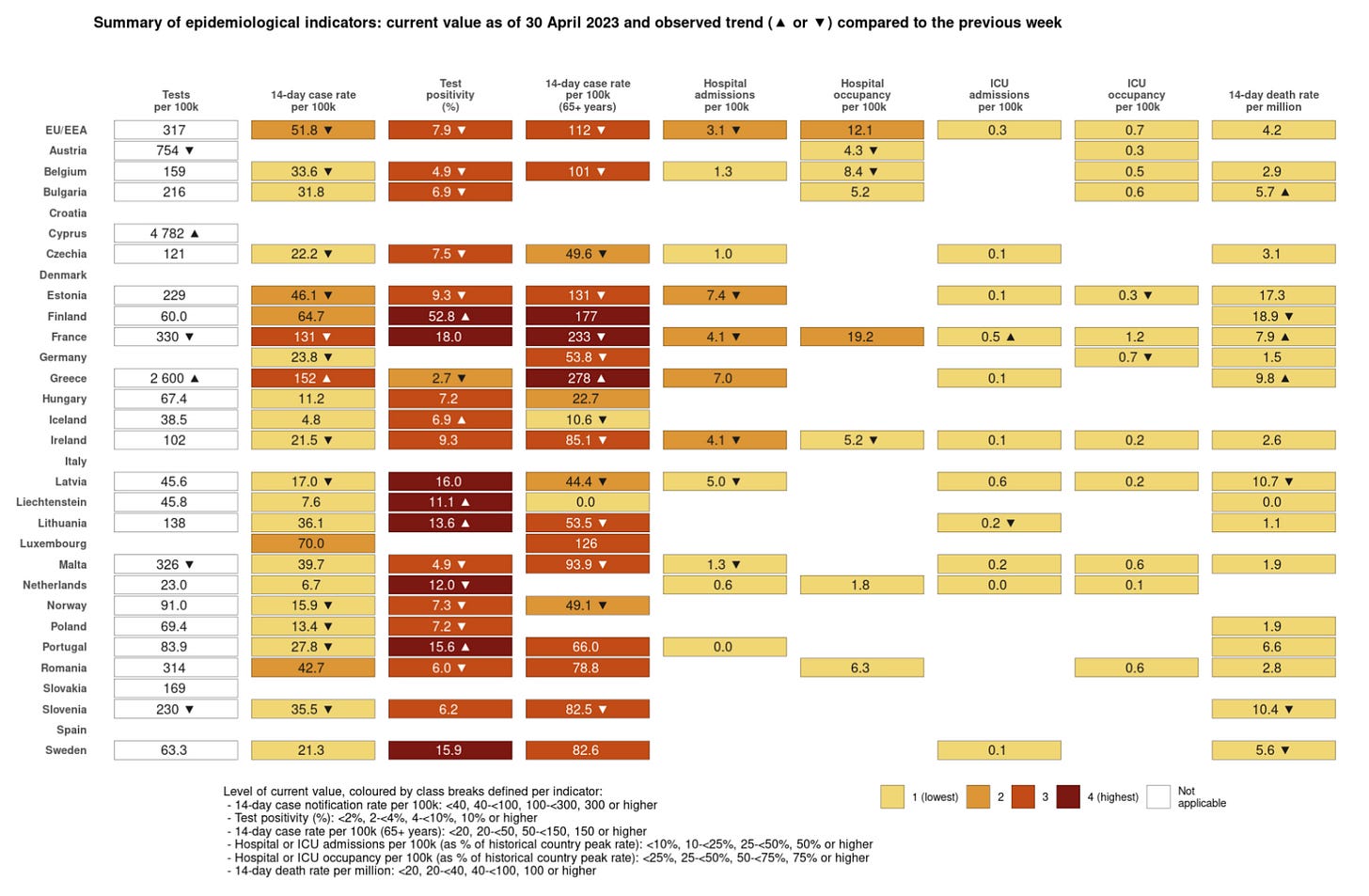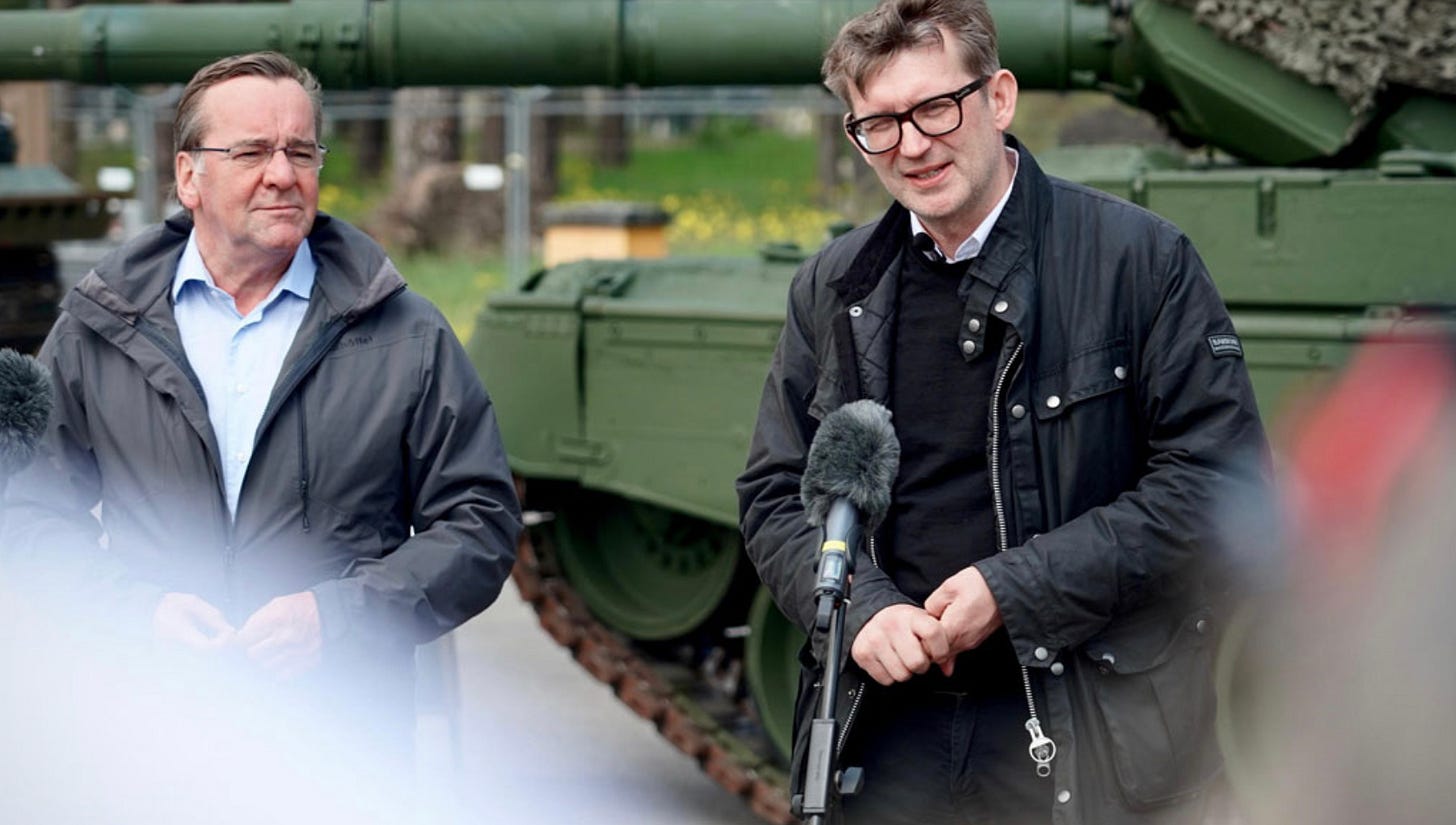🦠Pandemic🦠
🌍 🦠
The World Health Organization is urging countries to continue to prioritize the fight against COVID even as it ends the pandemic-related global health emergency.
Executive Director of the WHO Health Emergencies Programme Dr. Mike Ryan says this has been the biggest health crisis the world has faced in a century. He says COVID is not over and the World Health Organization is simply shifting gears in its pandemic response.
“COVID has not gone away. COVID still represents a major challenge for all the vulnerable people out there. We are still in a transition phase and we are going to have to maintain our vigilance.”
WHO COVID Technical Lead, and Infectious Disease Epidemiologist, Dr. Maria Van Kerkhove says while the global health emergency is over, COVID is not.
“The virus is evolving, there will be more waves of infection. We need to continue to prevent infections, severe disease, long-COVID, and deaths. The worst thing to do right now is to stop. That is not what this means. It means that everything we are doing to fight COVID becomes more sustainable. That we focus on vulnerable populations. If it is surveillance we need to continue tracking the virus so we can better understand the variants that are circulating and what that means.”
Kerkhove says vaccination gaps in every country also need to be addressed but especially those in low-income countries where the numbers of unvaccinated people are most concentrated.
-
The pandemic is not over. That is the message from the Chief Economist of the United Nations Development Programme, Philip Schellekens. He says pandemic deaths have reached 22 million lives lost and COVID remains the 3rd leading cause of death across the globe.
“Call it over but that’s an awful lot of people who continue to die daily.”
Schellekens says the pandemic’s “tragic tale of inequality and neglect” continues to leave far too many lives at risk. He points directly to vaccine inequality with 2.3 billion people still having never had their first vaccine dose. And only 34% of the world’s population has all their booster doses.
“Vaccine equity today may be at its lowest point. Wealthy nations continue providing boosters, while vaccination efforts in the developing world have grounded to an almost complete stop six months ago. And yes vaccine equity is not just a function of inequitable supply. Demand side factors too are shaped by inequity!”
Wealthy nations, which ate up global vaccine supply leaving developing nations out in the cold, enjoy the highest vaccination rate among their populations. The poorer populations in the world are still struggling to get even the basic first two vaccine doses.
89% of all the unvaccinated people in the world live in developing countries.
-
As the World Health Organization ends the designation that COVID is a ‘global health emergency’ it is also signaling that health services around the world are beginning to recover from the pandemic. In a WHO ‘pulse survey’ 84 countries reported that pandemic-related disruptions to health services have steadily declined through to January of this year. The global health agency defines disruptions as pandemic impacts limiting the availability of healthcare staff, having a significant draw on hospital resources, and straining medicine supplies.
WHO Director for Integrated Health Services Dr Rudi Eggers:
“It is welcome news that health systems in the majority of countries are starting to restore essential health services for millions of people who missed them during the pandemic. But we need to ensure that all countries continue to close this gap to recover health services, and apply lessons learned to build more prepared and resilient health systems for the future.”
The WHO says the number of countries reporting significant COVID-related disruptions in healthcare delivery has dropped to about a quarter, 18 of 66 reporting countries, within the last year.
But it also emphasizes that while the situation is much improved healthcare delivery continues to be impacted “across all regions and income levels.” Countries are especially being hampered by significant backlogs of delayed or postponed procedures built up over the last few years of the pandemic.
-
COVID cases and deaths continue to trend downward around the world according to the latest weekly pandemic snapshot from the World Health Organization. Over a 28-day period ending April 30, the WHO says there were nearly 2.8 million new infections (-17%) and over 17,000 more lives lost (-30%).
“Reported COVID cases are underestimates. This is partly due to the reductions in testing and delays in reporting in many countries.”
The picture is a little more mixed burrowing down to the regional and country level.
Three of the six global health regions are now seeing increasing coronavirus numbers.
South-East Asia continues to be a huge COVID concern as infection numbers surged upward (+454%). India remains a pandemic hot spot with 222,784 new infections (+540%), along with Thailand where 3,502 new coronavirus cases were reported (+458%), and Indonesia with another 27,358 infections (+168%). COVID deaths also shot upward in the region (+317%). The 652 lives lost in India (+515%) was the most in the region.
The Eastern Mediterranean also remains a very active pandemic zone as case numbers rose (+8%) and coronavirus deaths also increased (+61%). Saudi Arabia is among the hardest-hit countries in the region with 6,457 new infections (+56%). While Iran is seeing pandemic deaths head upward with 762 more lives lost (+82%).
The Western Pacific Region also saw case numbers head upward (+15%). The infection pressure is coming from South Korea with 330,509 new cases (+22%), Japan where 251,158 virus cases (+24%) were reported, and 98,318 new infections registered in Singapore(+179%).
Elsewhere, the United States continues to clock the most new infections of any country on Earth with another 392,480 cases (-37%) while losing 5,263 more American lives (-29%), which is also the highest number of deaths anywhere in the world.
France also remains a hot spot with 197,190 new COVID cases (+2%) and 871 more virus fatalities (+39%).
Around the globe, COVID hospitalizations fell (-23%) as did intensive care admissions (-11%).
Of the 49 countries reporting hospital data to the WHO, eight countries saw admission numbers surge. They are Afghanistan (+883%), Qatar (+175%), Singapore (+154%), Indonesia (+149%), Malaysia (+55%), France (+25%), Latvia (+21%), and Estonia (+21%).
No surprise here, but the United States also registered the most new infection-related hospital admissions with 55,158 (-29%).
Of the 23 countries reporting ICU data, nine saw a concerning increase in intensive care admissions. They are Indonesia (+102%), Sweden (+81%), Malaysia (+69%), Ireland(+58%), Latvia (+57%), Brunei Darussalam (+50%), Singapore (+44%), Qatar (+40%), and France (+20%).
From what little testing and sequencing is still happening around the world, the WHO says in week 15, XBB.1.5 accounted for 46.7% of reported positive tests, a slight week-to-week decrease. XBB.1.16, now active in 40 countries, increased its presence accounting for 5.7% of cases, more than doubling its share from the week before.
🇪🇺🦠
“A general downward trend” that is how the European Centre for Disease Prevention and Control is describing the pandemic situation in its latest weekly update. But it cautions with testing numbers falling like a rock and fewer countries reporting infection data due to the May 1st holiday the COVID situation across Europe is unreliable at best.
Overall, coronavirus cases across Europe were stable or decreasing across all age groups. The ECDC says recent increases in coronavirus transmission and indicators of severe infections seen in Bulgaria, Estonia, Finland, and France, appear to have peaked or are close to it. But Greece remains a COVID hot spot with overall infections rising and cases also increasing among vulnerable seniors over 65. It is the only country reporting increases in case counts.
Of the 16 countries reporting hospitalization data, just one, France, reported an increase. It saw intensive care admissions rise.
Last week, Europe lost another 531 lives to the pandemic. Bulgaria, France, and Greece, all reported rising numbers of COVID deaths.
Just six countries in Europe are testing and sequencing positive results in numbers high enough to derive any useful data from. The XBB.1.5 variant remains dominant according to what little information is on hand as the strain accounted for 81.2% of all sequenced positive tests.
Uptake for a second booster dose remains lackluster across Europe with just 35.5% if seniors over 60 availing themselves of the protection offered by the bivalent variant-specific booster doses.
🇩🇰
Several hundred medical centers have had to repay a total of 15.8 million Danish kroner (about $3.1 million Cdn) after collecting fees for sending emails informing patients of a negative COVID test. The fiscal abuse was uncovered by an investigation by the Danish news agency TV2. In the original agreement between doctors and the health regions, emails informing a patient of a negative test result could be sent out in ‘exceptional circumstances’. But some doctors were “systematically abusing” the scheme.
Region Sjælland Chair Heino Knudsen, who also chairs the Danish Regions Wage and Practice Committee, spoke to TV2:
“The service has been used in an inappropriate way. In a way that it was not intended.”
In Denmark, COVID test results could be easily checked online, or via an app, but the TV2 investigation revealed that doctors sent out, and billed for, 539,000 emails informing people of a negative PCR test result. Even after the reimbursement for abusing the system Doctors still earned 11.3 million Danish kroner (about $2.2 million Cdn) for sending emailed test results.
-
Facing a one-two punch from the pandemic and then the energy crisis, bars and concert venues across Denmark are struggling to stay afloat. Dansk Live, which represents about 100 venues across the country, estimates about 40% of its members came out of 2022 awash in red ink. It says after nightlife and concert venues were forced to close for most of the pandemic now they are struggling with poor ticket sales, lackluster alcohol sales, and an overall drop in bar turnover. On top of all this inflation and last fall’s soaring energy prices also took a big bite out of a bottom line that was already struggling. The organization says the issue is serious with ultimately the survival of venues across Denmark at stake if solutions are not found.
🇨🇦
The World Health Organization May have declared that the COVID global health emergency is over but it doesn’t mean the pandemic won’t throw us another “big surprise.” That is according to McGill University Genomic Evolutionary Biologist Jesse Shapiro. Speaking to the National Post, Shapiro noted how fast coronavirus is spitting out new variants, like the new XBB.1.16 strain and this means another evolution of the virus could put the world right back under threat again.
“Nothing really stays still. There are new mutations or new combinations of mutations that are popping up.”
While XBB.1.16 shoulders aside other variants in places like India where case counts are surging, Shapiro doesn’t see this strain as “particularly wild and shocking.”
As with any new variant, there are more questions than answers right now. But some studies have indicated the recombinant strain is the most infectious yet and has a greater ability to slip around antibody immunity.
“If you’ve been infected before, it’s able to escape some of those antibodies and immune cells that you’ve developed. But it’s not like something we saw with Omicron.”
Shapiro notes the arrival of the parent Omicron variant changed the game basically infecting or reinfecting everyone all at once, producing a huge infection wave.
“I think that becomes less and less likely as there is more immunity in the population.”
While the Omicron variant triggered a tidal wave of infections it did not cause any more severe infections. The Delta mutation continues to hold the dubious title of the most fearsome variant because it caused a lot more people it infected to get really sick, be hospitalized, and die than any strain has before or since. Shapiro says XBB.1.16 doesn’t appear to cause more severe infections.
“Each variant is a little bit different in its presentations, but there’s no clear evidence that it’s particularly more virulent or causing worse outcomes. The best advice for people is to get vaccinated. Getting a boost is still very important for people who are eligible for one, who are five or six months out of their last booster.”
He warns for high-risk and vulnerable populations who haven’t had a booster dose in five or six months are seriously at risk.
“[It] will make people vulnerable to pretty much any variant. A vaccine boost will help protect you, is the short answer.”
⚡️Energy Crisis⚡️
🇩🇰
On Tuesday (tomorrow) the Danish Council on Climate Change will table its analysis on how to achieve a more stable electricity supply from solar and wind power. The group is investigating if solar and wind power could be a more reliable source in situations like the energy crisis when the electricity system is under pressure.
-
Copenhagen has set the goal of banning fossil fuel vehicles by 2030. But while a majority of municipal parties made the decision they also acknowledged they cannot go it alone. To realize the goal Copenhagen must work with surrounding kommunes (municipalities) to get them on board. It will also need help from the Danish parliament. On the technical side, the city will also have to make sure there are enough electric vehicle charging stations to pull it off.
Copenhagen is not alone. Cities all over Europe are working toward, or have already implemented, steps to banning fossil fuel vehicles from city centers. In some cases, cities in Europe have already limited downtown access to gas and diesel vehicles.
🇫🇮
About half of all requests for electrical bill subsidies in Finland have been rejected. According to the Finnish Social Insurance Agency, Kela, it received about 4,300 applications for a subsidy the Finnish government put in place last fall to help with soaring electricity prices. Of those, some 2,250 were rejected. The agency says some of the submitted bills fell outside the timeline specified for the subsidy while others filed claims that did not exceed the required minimum of €400.
🇩🇪
Draft legislation in Germany will require newly-installed heating systems to have at least 65% of their power to be from renewable energy by next year. As Germany tries to push households away from gas and oil-fired heating systems the bill also aims to phase out all boilers fueled by oil and gas by 2044. The draft legislation is in an early stage as parliamentary consultations begin and is not yet law.
German Economy and Climate Minister Robert Habeck called the bill a milestone in climate change policy. But in comments to German broadcaster Deutschlandfunk, he also admitted it was not going over well with the public. Habeck dismissed falling poll numbers saying tough decisions, especially on climate change, need to be made.
“We have lost so many years. Difficult questions were also not tackled because people were afraid of polls and of electoral defeats."
🇫🇷
A serious drought has already sunk its teeth into many areas of France. In the region of Pyrénées-Orientales, which is on the border with Spain, local authorities have taken drastic steps. As of May 10, there will be a ban on both the sale and filling of swimming pools. Watering gardens and washing cars have also been prohibited. The region will also declare a state of crisis. The French Sustainable Transition Ministry says that region of France hasn’t had a full day of rain in at least a year.
🇺🇦/ 🇷🇺 War
🇵🇱/ 🇷🇺
Russian fighter planes continue to play a dangerous game in the sky. On Friday, a Russian fighter jet intercepted a Polish surveillance aircraft on patrol in international airspace where it was monitoring the European Union border. Polish authorities say the Russian aircraft carried out "aggressive and dangerous maneuvers" around the Polish plans. On three occasions the Russian fighter came within five meters and in one instance the pilots of the surveillance aircraft temporarily lost control of one of the plane’s engines trying to avoid a crash. There were no injuries and the surveillance plane landed safely.
🇩🇰 🇸🇪 🇳🇴 🇩🇪 🇫🇷/ 🇷🇺
Documents obtained by Danish public broadcaster, DR, show how Russia built a campaign to foment discord in Europe based on a Scandinavian extreme right-wing activist’s burning of the Muslim holy book, the Quran. The Russian intelligence documents and the campaign they map out were the results of a collaboration between DR, and fellow public broadcasters in Sweden, Norway, and Germany, as well as French newspaper Le Monde, research organization Dossier Center, and others.
The leaked documents show how Russian intelligence developed a strategy to build on the burning of a Quran in Stockholm by a right-wing extremist, which itself was paid for by a journalist connected to Russian state media. In March, after the Quran burning, a fake street protest was organized in Paris to denigrate Turkey’s President Recep Tayyip Erdogan, burn Turkish flags, stage Nazi salutes by supposed Ukrainians, and film it all to then disseminate online and on social media. This is with the goal to kneecap Sweden’s NATO application, drive a wedge between European allies, and turn Europeans against Ukraine.
Danish Institute for International Studies Senior Researcher Flemming Splidsboel, who focuses on Russian propaganda campaigns including staged demonstrations, spoke to DR:
“It is obvious, when you look at the burning of the Quran in terms of time, that the Russians may have thought: 'There is an opportunity to use this. We can see that it has a great effect, that it brings people to the streets and that there are unrest and demonstrations.”
The Russian plan was to hold similar demonstrations in Brussels, The Hague, and other European cities.
According to DR and the Dossier Center, the documents originate from a Russian intelligence officer, however, the officer’s name and service they work for is being withheld for security reasons. The online disinformation campaign using the building blocks of the Quran burning and the staged protest in Paris was traced to two men in St. Petersburg.
The Swedish intelligence agency, SÄPO, wouldn’t comment on the specifics of this investigation but do say the information is consistent with other Russian campaigns to create discord within Sweden and across Europe.
To date, Sweden’s admission to NATO remains in stasis due to Hungary and Turkey refusing to hold ratification votes. The only two NATO member nations to do so.
🇩🇰
An area of Køge harbour was designated a ‘temporary military area’ yesterday. Access was restricted to a portion of the harbour and it was also under military guard. The reason for the security measures is the return of Danish soldiers and equipment returning from NATO deployment in Latvia. The restrictions lasted most of the day and were lifted last night at 11.
-
Another temporary military area will be put in place at a section of Aalborg harbour beginning tonight at 6 pm. Access will be restricted until midnight on May 8th.
🇩🇪 🇩🇰 🇺🇦
Denmark and Germany’s Defense Ministers visited soldiers at an army site in eastern Germany where Ukrainian troops are being trained. The visit took place on Friday. Here Ukrainian soldiers are being instructed on how to use Leopard 1 A5 battle tanks.
German Defence Minister Boris Pistorius spoke to dpa:
“I stand by it and say it again and again with the utmost conviction: We will support Ukraine with everything that is possible for as long as it takes.”
Denmark’s Acting Minister of Defense Troels Lund Poulsen:
“This is a large and important donation to Ukraine. From my visit to Ukraine a few weeks ago, I know that the Ukrainians are looking forward to receiving the tanks and the training activity is another big step on the way to us being able to send them to Ukraine. Our cooperation on the donation of such a large number of Leopard 1 tanks goes well with other countries' supply of tanks to Ukraine, and our joint project emphasizes the importance of cooperation between nations and industry. It is absolutely crucial for continued support for Ukraine.”
Pistorius and Poulsen held talks with both the instructors and soldiers getting trained. The Ukrainians are being trained by both German and Danish instructors.
Denmark, Germany, and the Netherlands have pledged to refurbish up to 100 Leopard tanks and get them to Ukraine. The first battalion of tanks should be ready soon. The donation comes with ammunition, spare parts, and the training provided in Germany. So far 3,000 Ukrainian troops have undergone training at the site and another 6,000 is expected to follow suit.
🇳🇴
Norway will increase defense spending to 2% of its GDP by 2026. Norwegian Prime Minister Jonas Gahr Støre says his government will table a “concrete plan” to achieve this goal at the NATao summit this summer in Vilnius, Lithuania.
Støre says after reaping peace over the last decade, Norway must now pay a large insurance premium.
“Russia's war of aggression against Ukraine has shaken Europe's security. We must continue to strengthen the Norwegian defense and the defense alliance we are part of. That is why we are now announcing that Norway will spend at least 2% of Norway's gross domestic product on defense by 2026, and we will create a concrete plan for how we will do it.”
Defense Minister Bjørn Arild Gram:
“Committing Norway to NATO's 2% target is very important for our national security. We are now working on a new long-term plan for the defense sector which will be presented next year. It will specify the escalation plan for how we will strengthen the Armed Forces. At the same time, we already see that the Armed Forces must become larger and that we must use more resources for a presence in our entire area of national responsibility, especially in our maritime areas.”
NATO set the goal for its member countries to spend 2% of their GDP on defense spending back in 2014. But it hasn’t been until Russia’s invasion of Ukraine that many of those nations suddenly raced to meet that obligation.
🇪🇺 🇷🇺 🇨🇳
The European Union is taking aim at China in its latest round of proposed sanctions against Russia for its invasion of Ukraine. The Financial Times is reporting the EU is proposing sanctions against Chinese companies that are being accused of selling equipment that could be used in weapons to support Russia’s war in Ukraine. FT reports that seven Chinese businessmen are on a sanctions list to be discussed by EU member nations this week.
The European Union has already leveled 10 rounds of sanctions against Russia as it tries to cripple the Russian war effort and hamstring Russia’s economy.
🇺🇦/ 🇷🇺
American-made Patriot air defense missiles successfully intercepted and downed one of Russia’s highly touted brand-new hypersonic missiles in the skies over Ukraine. The head of Ukraine’s Air Force confirmed the news on social media. The Kh-47 Kinzhai hypersonic missile was launched from an aircraft and was headed to a target in Kyiv when it was downed. Each missile is reportedly worth some $4 million (USD). Both Germany and the United States have recently donated Patriot air defense batteries to Ukraine.




